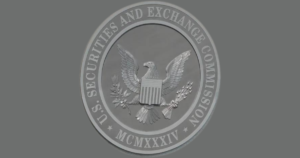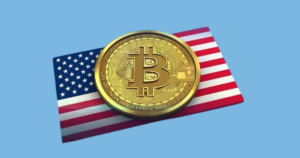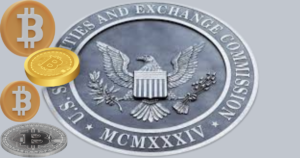Crypto Can’t Be Controlled by Current US Controllers

Alexandra Damsker, creator of “Understanding DeFi,” contends that the moving nature of Crypto tokens implies that organizations just like the SEC and CFTC are unfit of directing Crypto successfully.

It truly doesn’t matter which office controls tokens, since all of them are prefaced on the same thing: the controlled item is static. A stock could be a stock from the day it’s made until the day it is voided or the company is broken down. Fiat is money from the day it is stamped until the day it is crushed. But not tokens. Tokens are energetic – they can have different diverse functions to diverse holders, or even to the same holder, at the same time. And there’s no administrative framework within the world that can account for that.
Let’s see at a few of the things tokens can do, and the administrative results of each:
Move exchanges along a chain. This can be simply utilitarian and unregulated.
Incentivize individuals who contribute exertion to secure and oversee the blockchain. This is often an trade for labor or administrations, and does not depend on any assumed esteem for the token, so is unregulated.
Speak to esteem, either physical or advanced. This is often as it were controlled when the basic spoken to thing is regulated (e.g., a token speaking to a tv is not controlled, but a token speaking to a share of stock in Tesla is directed).
Speak to a physical or digital product or gather of rights. This can be fair a item, and unregulated other than any mental property rights that may attach.
Installment for products or administrations OTHER than value-based expenses (i.e., gas expenses). Typically dubious: unless it’s a stablecoin, it’s comparable to a money, but not very the same. (Keep in mind that monetary forms are intended to be a store of esteem that remains inside a contract extend to a key focused on or trade rate. Resources, on the other hand, are outlined to change in esteem – that’s how your modest investment in something all of a sudden gets to be worth so much, or your colossal speculation in something else falls to nothing.) Monetary standards are regulated by the U.S. Office of Treasury, counting FinCEN and the IRS.
Installment for value-based expenses (gas expenses). These are benefit expenses, and for the most part unregulated.
Speak to halfway esteem. (This can be extraordinary – you can’t possess a halfway stock or fractional portray, but you’ll get fragmentary esteem of beautiful much anything in the event that you tokenize it.) This one is tricky, too: for the most part, In the event that you break an resource into part-interests where everybody offers intrigued within the entire, it’s a security, directed by the SEC. But on the off chance that you break things up in a way that you own something unmistakable and person, instead of a chunk of a entirety, it’s by and large NOT a security. It may well be a product, in any case, like bitcoin (BTC).
Speak to rewards for taking on hazard or offering a great or benefit, like staking on chains without giving approval work, or installment for tokens lent to a liquidity pool, borrower stage or application. Usually directed by a combination of securities and Treasury regulators.
Represent voting rights. Directed by the SEC in open companies as it were.
Speak to seen or theoretical advertise esteem. A security or product, and controlled by the SEC or CFTC, accordingly.
You’ll be able see how numerous things a token can be – and the buyer doesn’t know what a particular token will conclusion up. On the off chance that I purchase ether (ETH) in January, February and Walk, at that point in June stake a few with a validator, buy a one-of-one NFT (a item) in July, and a meme coin (likely a security) in Admirable, paying gas for each exchange, which ETH particularly was used for which exchange?
I, the buyer, do not even know – I won’t know which ETH was utilized to purchase the meme coin until I apply my jurisdiction’s accounting strategy. So we as it were discover out in retrospect which regulatory system to see at for any specific ETH until after I spend it and apply proficient bookkeeping methods.
Presently we toss within the truth that there’s a individual on the other side of the exchange – who may then shift the ETH into something else, similar to I did. I took ETH I obtained on the commercial center (likely a security) to purchase a item (the NFT) and benefit expenses (gas expenses). The person who sold me the NFT could have taken the ETH (installment/ cash) and after that set a few of it on the market (currency), voted on an Ethereum Change Proposition (EIP) with some (voting), and acquired an NFT in a major fine craftsmanship piece (security) and paid benefit expenses (gas expenses).
Bitcoin Contains a Control Issue
Control is among the key variables that affect Bitcoin’s price. The cryptocurrency’s rise in ubiquity has been captured each time a government has split the policy whip, and nations have taken shifting approaches to Bitcoin direction.
For illustration, in November 2019, Bitcoin sank when China quickened a crackdown on cryptocurrency businesses. Conversely, whenever a administrative “triumph” rises, costs surge temporarily. For instance, in January 2024, after a long time of Bitcoin Spot ETF denials from regulators, Bitcoin Spot ETF endorsements caused its price to climb over the following months to more than $73,000.
By their exceptionally nature, cryptocurrencies are freewheeling, not indebted to nation borders or particular organizations inside a government. However, this nature presents a problem to policymakers who are utilized to dealing with clear-cut definitions for assets. Here are two uncertain questions relating to Bitcoin control.
KEY TAKEAWAYS
Bitcoin control can shift on both the national and local levels, depending on the nation or geographical area.
In the U.S., the IRS treats cryptocurrency as property, whereas the CFTC considers it a product.
Numerous cryptocurrency companies have attempted to dodge securities laws or necessities by claiming their tokens are utility or value-based tokens rather than security tokens.
Who Should Direct Cryptocurrencies?
Nothing is more symptomatic of disarray approximately cryptocurrencies than their classification by U.S. regulatory organizations and overhauls with previous President Donald Trump’s assess change law. The Product Prospects Exchanging Commission (CFTC) treats Bitcoin as a product, whereas the Internal Revenue Service (IRS) treats it as property.
There’s also a difference in state and government responses to cryptocurrency. Whereas states have moved with cheerful readiness and formulated rules for introductory coin offerings (ICOSs) and smart contracts, government reactions are for the most part fueled by translating existing laws compared to how the cryptocurrencies are being utilized. For illustration, cryptocurrency startups in Modern York are required to get a BitLicense, which has stringent necessities with respect to divulgences, before an ICO. So also, Arizona recognizes savvy contracts. In any case, as of Walk 2024, Congress hadn’t sanctioned any enactment to direct controllers, in spite of the fact that there have been several endeavors.
How Ought to Cryptocurrencies Be Regulated?
The one of a kind characteristics and worldwide compactness of cryptocurrencies display another issue for controllers.
For illustration, there are broadly four distinctive sorts of tokens being exchanged on exchanges—transactional, utility, security, and governance tokens. As their title shows, utility tokens serve an fundamental purpose on a platform. For case, ether (ETH) is used on Ethereum to pay exchange expenses and as collateral for taking part in blockchain forms and earning rewards.
Such tokens are not subject to the SEC’s rules unless they are utilized as securities. On the other hand, security tokens speak to value or a share in a company and automatically drop under SEC purview. Governance tokens allow holders particular rights on a blockchain, and transactional tokens are outlined to as it were be utilized in financial transactions.
Such new companies have been freely reproached, but that has not halted tokens with flawed business models from being listed on trades exterior their local nations.
In response, universal offices such as the Worldwide Financial Support (IMF) have called for an worldwide dialog and participation among controllers as distant as cryptocurrencies are concerned. The EU, which has been inviting of the cryptocurrency revolution, may possess an advantage over other regions since it controls a 28-member alliance. In June 2023, the EU Markets in Crypto Assets (MiCA) direction entered into constrain. MiCA characterizes cryptocurrency assets and how they are to be directed in the bloc. This legislation answers how cryptocurrency ought to be regulated in the EU, but the U.S. and other nations are still working on arrangements. A few countries have placed by and large or fractional bans on cryptocurrencies.
Creating Controls for Cryptocurrencies
On his Twitter page, the previous head of blockchain hone at law firm Cooley, Marco Santori, called bitcoin a “lawful platypus” that doesn’t fit neatly into established resource categories. In any case, the platypus may not be such a huge issue for tax assessment or purposes within the Joined together States.
Bitcoin and cryptocurrencies are actually no diverse than cash, stocks, bonds, or other monetary instruments—they can speak to the same things. Within the U.S., controls already exist that can apply to how an investor, business, or buyer treats them. Creating definitions and applying them to these virtual resources for administrative purposes, as is already being worked on, may be all that’s required.
Controllers May See to Asia for Direction
A few nations, eminently in Asia, are pointers in ways to bargain with cryptocurrencies. The clearest sign of future policy for the region with respect to control may come from Japan, which authoritatively recognized cryptocurrencies as property in its Installments and Administrations Act and developed a system in 2017.
New companies arranging an ICO are moreover required to get a permit that sets up a least set of necessities and disclosures for the advertising. At long last, trades are too subject to capital prerequisites, strict IT compliance checks, and directions approximately KYC (Know Your Client). To realize these changes, Japan had to amend its Payment Service Act. To be beyond any doubt, the assignment is much simpler in Japan since the nation has as it were one organization, the Financial Administrations Organization, to operationalize the changes.
South Korea has plans to assess any cryptocurrency benefits of more than 2.5 million South Korean won at 20%, a degree which is planned to be placed into impact in 2025.
Will the SEC Control Bitcoin?
The Securities and Trade Commission directs resources it decides to be securities. It doesn’t however regulate Bitcoin, but it is controlling speculations or derivatives related to Bitcoin.
Will Bitcoin Survive Regulation?
Bitcoin has survived numerous administrative changes so distant, likely due to the weight the cryptocurrency community puts on governments and regulators and the activities it takes to maintain a strategic distance from regulation.
Is Bitcoin Legal within the Joined together States?
Yes, Bitcoin is lawful within the U.S., but it is not recognized as lawful tender—which implies it is not supported or bolstered by the U.S. government.

Conclusion
Bitcoin controls vary around the globe if they exist at all. But one thing remains certain—developed nations with financial services regulators are likely to create controls on cryptocurrency activities to secure the interests of customers and governments and combat unlawful movement.










